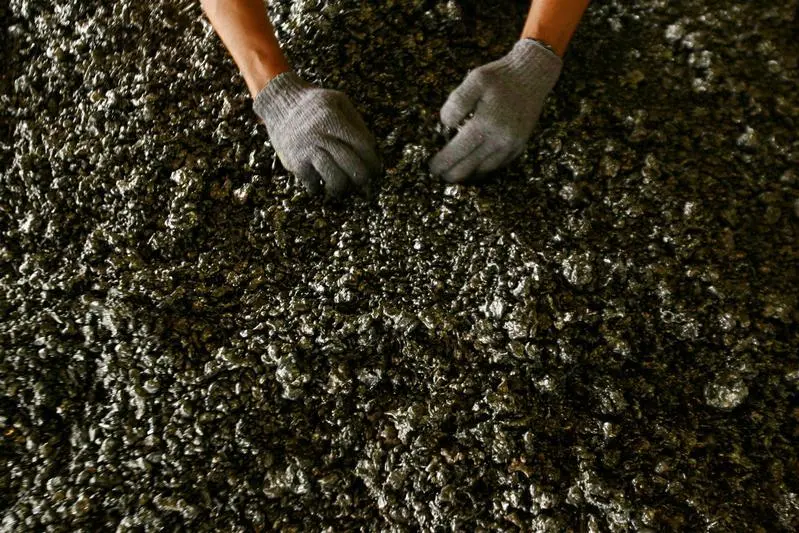PHOTO
MANILA - Philippine nickel mining companies are likely to boost ore production next year when Indonesia bans exports of the raw material used in stainless steel and batteries, but may still not be able to fill up the supply gap.
The Southeast Asian neighbouring countries are the biggest suppliers of nickel ore to China, the world's largest stainless steel producer and home to some of the biggest makers of batteries for electric vehicles.
Indonesia will stop nickel ore exports from Jan. 1, 2020, two years earlier than initially flagged as it speeds up efforts to process more of its resources at home, raising questions about the Philippines' ability to cover the supply gap created by the ban.
The ban will encourage Philippine miners to start ramping up ore output when the local mining season resumes next year, Dante Bravo, president of the Philippine Nickel Industry Association told Reuters.
The Philippines, which has 29 nickel mines and two nickel processing plants, usually ends its mining season in October, when heavy rains and strong winds hamper mining and shipping operations. Production will resume in March or April next year, or at least three months following the implementation of the export ban.
Indonesian ore is generally a higher grade than ore from the Philippines, Bravo noted.
"However, Chinese smelters have been able to process our lower grade ores, so supply of lower grade ores coming from the Philippines is not an issue," said Bravo, who is also president of Global Ferronickel Holdings Inc FNI.PS , the Philippines' No. 2 nickel ore producer and exporter.
PRICES, SHARES SOAR
Bravo did not give any estimate on Philippines' ore production and shipments for the next year, but said Indonesia's policy move will pave the way for increased sales of lower-grade 1.2%, 1.3% and 1.4% nickel ores.
Nickel Asia Corp NIKL.PS , the leading nickel ore miner in the Philippines, expects the supply outage to be massive as Indonesia plans to export about 20 million tonnes this year alone.
"It's zero exports from Indonesia next year. How do you cover that" Senior Vice-President and CFO Emmanuel Samson said. "The Philippines will have a difficult time covering that," he told Reuters.
Nickel Asia, which accounts for about half of the Philippines' nickel ore production, expects to book windfall gains from the supply disruption that will keep nickel prices high, he said.
The announcement about an expedited ban boosted nickel prices. The three-month nickel contract on the London Metal Exchange CMNI3 gained 3% to $18,470 a tonne on Monday, its highest in nearly five years.
Shares of Nickel Asia surged 50% to their highest since September 2017, while Global Ferronickel jumped 14.3% to a nine-month high.
"Prices have nowhere to go but up and that's what we saw in 2014 (when Indonesia's previous ban took effect). The difference is that in 2014 there was no battery story" helping to drive prices higher, Samson said.
Increased production of electric vehicles will continue to lift demand and prices of the metal, he said.
(Reporting by Enrico dela Cruz; Editing by Richard Pullin and Sherry Jacob-Phillips) ((enrico.delacruz@tr.com; +632 841-8934;))





















